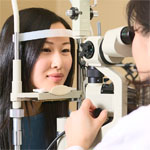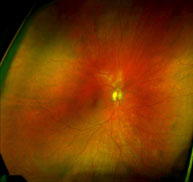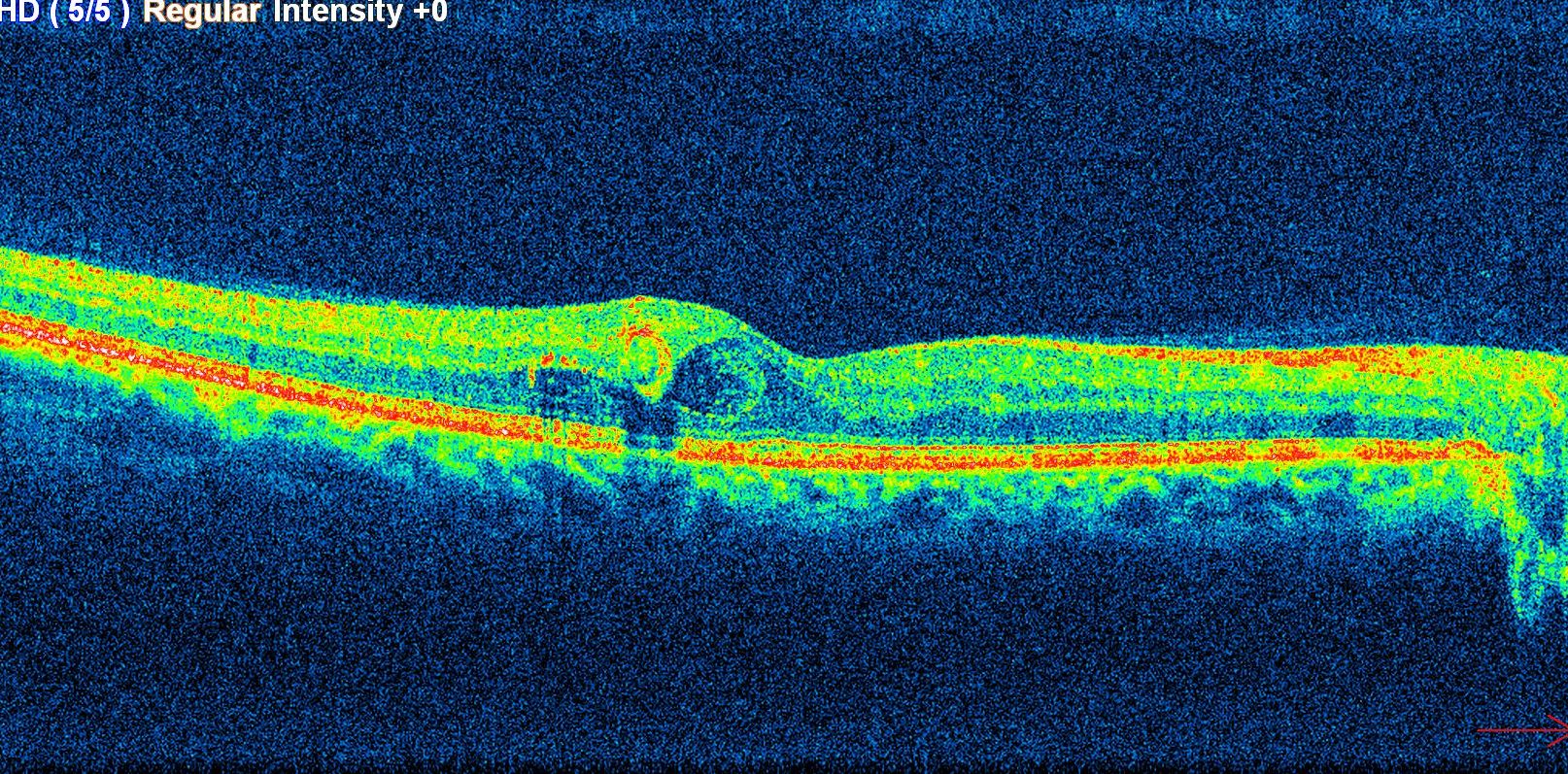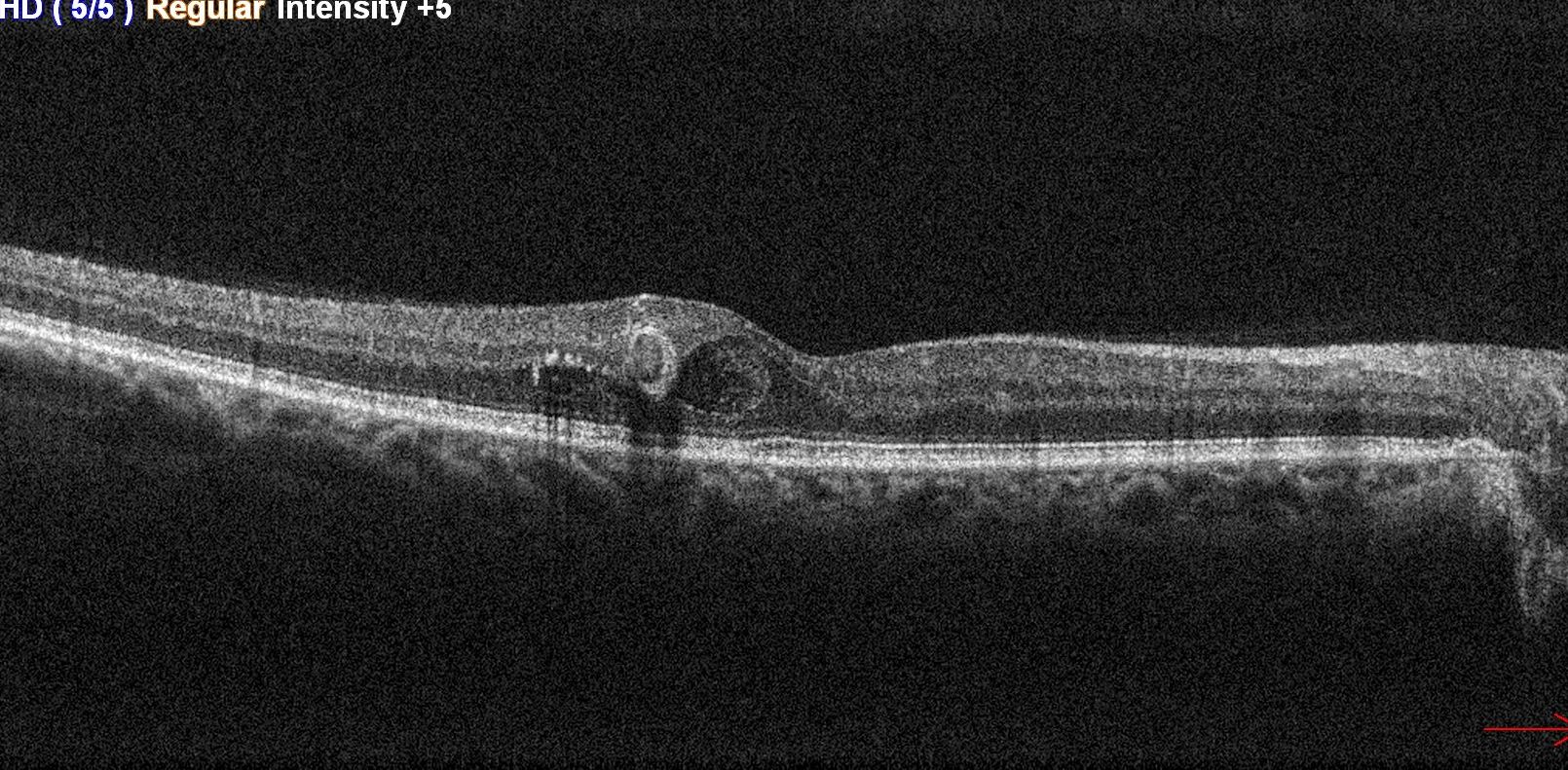COMPREHENSIVE EYE EXAMINATION
 Frequent eye exams are indispensable to your eye health. Since the eye is a sensitive organ, it undergoes many changes over a lifetime - changes that may be imperceptible to you, but which can lead to difficulties if left undetected. Only your eye care professional has the specialized knowledge and precision instrumentation available to evaluate the general health of your eyes, as well as the effectiveness of your contact lenses. Frequent eye exams are indispensable to your eye health. Since the eye is a sensitive organ, it undergoes many changes over a lifetime - changes that may be imperceptible to you, but which can lead to difficulties if left undetected. Only your eye care professional has the specialized knowledge and precision instrumentation available to evaluate the general health of your eyes, as well as the effectiveness of your contact lenses.
Seeing 20/20 isn't the only reason to have an eye exam. During the course of an annual exam, your eye care professional may not only tell you about the health of your eyes, but also about your health in general. Your eye care professional may detect the early onset of certain diseases such as glaucoma and cataracts, as well as diabetes, high blood pressure and multiple sclerosis - just by examining your eyes.
In addition to your annual eye exam, your eye care professional will tell you how often you need to have your eyes checked. Never extend the time until your next visit. We utilize the most up to date technologies in our clinic to help maintain the health of your eyes.
OPTOMAP RETINAL IMAGING
 We are pleased to inform you that during your next visit to The Eye Care Clinic you will experience the benefits of the latest technology in eye exams – the Optomap™ Retinal Exam. The Optomap will produce the most comprehensive image of your retina, and allow us to perform a more thorough exam than was previously possible. The result is that we can better prevent or reduce vision loss in our patients with a simple, quick and patient-friendly new exam. Any routine eye exam should always include a careful look at the retina, which is located at the back of the eye, to screen for abnormalities or disease. The sensitive tissue that makes up the retina is susceptible to a variety of diseases that can ultimately lead to partial loss of vision or even complete blindness. Early detection of any retinal abnormality is thus crucial. Previously, this screening was done by dilating the pupils, a procedure that many patients found uncomfortable, inconvenient and time-consuming. We are pleased to inform you that during your next visit to The Eye Care Clinic you will experience the benefits of the latest technology in eye exams – the Optomap™ Retinal Exam. The Optomap will produce the most comprehensive image of your retina, and allow us to perform a more thorough exam than was previously possible. The result is that we can better prevent or reduce vision loss in our patients with a simple, quick and patient-friendly new exam. Any routine eye exam should always include a careful look at the retina, which is located at the back of the eye, to screen for abnormalities or disease. The sensitive tissue that makes up the retina is susceptible to a variety of diseases that can ultimately lead to partial loss of vision or even complete blindness. Early detection of any retinal abnormality is thus crucial. Previously, this screening was done by dilating the pupils, a procedure that many patients found uncomfortable, inconvenient and time-consuming.
The Optomap is made possible by using a new technology – the Panoramic200™ Retinal Imaging System. The Optomap enables us to see nearly all of your retina. Furthermore, it eliminates the discomfort and inconvenience associated with pupil dilation. As a result, you will not experience blurred vision or sensitivity to light following your eye exam. It is important to note however, that should any abnormalities be detected or if we cannot obtain an acceptable image, dilation may be necessary. The Optomap exam is simple: at the push of a button, we can generate a computer image of your retina for immediate review.
Experience with this technology has already led to improved disease detection and has possibly prevented vision loss and blindness in several patients. We will be discussing this revolutionary exam with you further at your next appointment.
Here at the Eye Care Clinic, we are dedicated to offering our patients the best eye care possible, and acquiring the tools to help us do so. We look forward to seeing you during your next visit – and providing the most comprehensive and advanced vision care available.
Optical Coherence Tomography
_________________________________________________________________________________________________________________________________________________________
 
The optical coherence tomography (OCT) enables us to provide a more thorough record of the health of your eyes. An OCT permits us to observe the condition of your retina by taking a cross-sectional image through the eye similar to an MRI scan. This layer-by-layer investigation assists in early detection of sight threatening ocular conditions including central retinal disease, central detachments, holes, thinning, optic nerve disease, precancerous lesions, macular degeneration, and diabetic retinopathy. (Sometimes even before the vision decreases) We store the images for future comparisons. It is especially important for those patients that have personal or family history of High blood pressure, diabetes, retinal problems, headaches, floaters, flashing lights, high spectacle prescriptions, reduced vision, macular degeneration, cataracts or taking certain medications.
We recommend that everyone over the age of 30 years old has a simple OCT to establish a base line and to examine the macula region in more detail.
Your doctor may recommend a more comprehensive OCT scan for some conditions e.g. Diabetes and macular degeneration. |